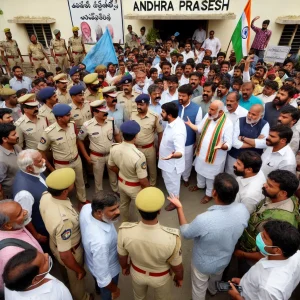
The upcoming 2026 Lok Sabha delimitation exercise is poised to significantly reshape India’s electoral landscape, but it comes with a contentious twist. Southern states, which have diligently followed the Central Government’s directives on population control, are now facing a drastic reduction in their parliamentary representation. Meanwhile, states like Uttar Pradesh and Bihar, which have not enforced such measures as effectively, are set to gain a substantial number of seats. This disparity raises a fundamental question—does this process unfairly penalize those who adhered to national policies while rewarding those who did not?
The delimitation process, a constitutional exercise aimed at adjusting parliamentary constituencies based on population shifts, has been frozen since 1976. The freeze was implemented to prevent states that successfully controlled population growth from being politically disadvantaged. However, with the upcoming 2026 delimitation, that very fear is becoming a reality. Southern states, which have some of the lowest fertility rates in India, are now set to lose Lok Sabha seats. Tamil Nadu and Kerala, in particular, have been exemplary in their family planning efforts, yet their reward for this success is fewer MPs and weaker electoral influence.
This situation not only raises concerns about fairness but also sends a dangerous message—following Central Government directives can come at a political cost. If states are penalized for their success in population control, it could discourage them from adhering to future national policies. The implications are far-reaching, as this could lead to a lack of trust in the fairness of India’s federal democracy among Southern states.
The financial implications of this delimitation are also significant. With fewer MPs, South Indian states will lose not just legislative power but also financial allocations linked to parliamentary representation. The MP Local Area Development (MPLAD) scheme, which provides each MP with funds to develop their constituency, will result in reduced funding for the South. Conversely, North Indian states will gain a disproportionate advantage, further exacerbating regional disparities.
A critical factor in the delimitation debate is its potential political impact. The Bharatiya Janata Party (BJP) has historically struggled in South India but dominates the Hindi heartland. A redrawing of constituencies that favors Uttar Pradesh, Bihar, and Madhya Pradesh—where the BJP has a strong voter base—gives the party a significant advantage. If the South loses seats while North India gains, national politics will tilt even further towards the BJP’s strongholds, making it harder for regional parties and opposition forces in the South to influence national decisions. Essentially, delimitation will not just shift power geographically but also politically—further consolidating the BJP’s hold on national governance while weakening Southern representation.
The South has long been a major contributor to India’s economy, with states like Tamil Nadu and Karnataka leading in industrialization, IT, and exports. Yet, their electoral influence is set to shrink, despite their economic significance. This imbalance threatens to create a long-term rift between North and South, where economic power does not translate into political representation. The economic prowess of Southern states is undeniable, but their political voice is being diminished, which could lead to a sense of disenfranchisement and disillusionment with the federal system.
The larger question remains—should states that followed Central Government policies be penalized for their success? What incentive does this create for states to adhere to national directives in the future? If population control results in electoral weakening, states might hesitate to implement similar directives in other policy areas. This could undermine the effectiveness of national policies across various sectors, as states might prioritize political power over policy adherence.
In conclusion, the 2026 delimitation exercise, if implemented as planned, risks deepening regional divides and creating a sense of disenfranchisement among Southern states. While equitable representation is important, it must be balanced against historical policy adherence and governance success. If the goal is fairness, then the South should not be punished for doing what the Centre once asked of them. It may be time to rethink how India allocates seats, ensuring that electoral power is not just a function of population but also governance performance. If the nation does not address these concerns, the South might not just lose seats—it may lose faith in the fairness of India’s federal democracy.




